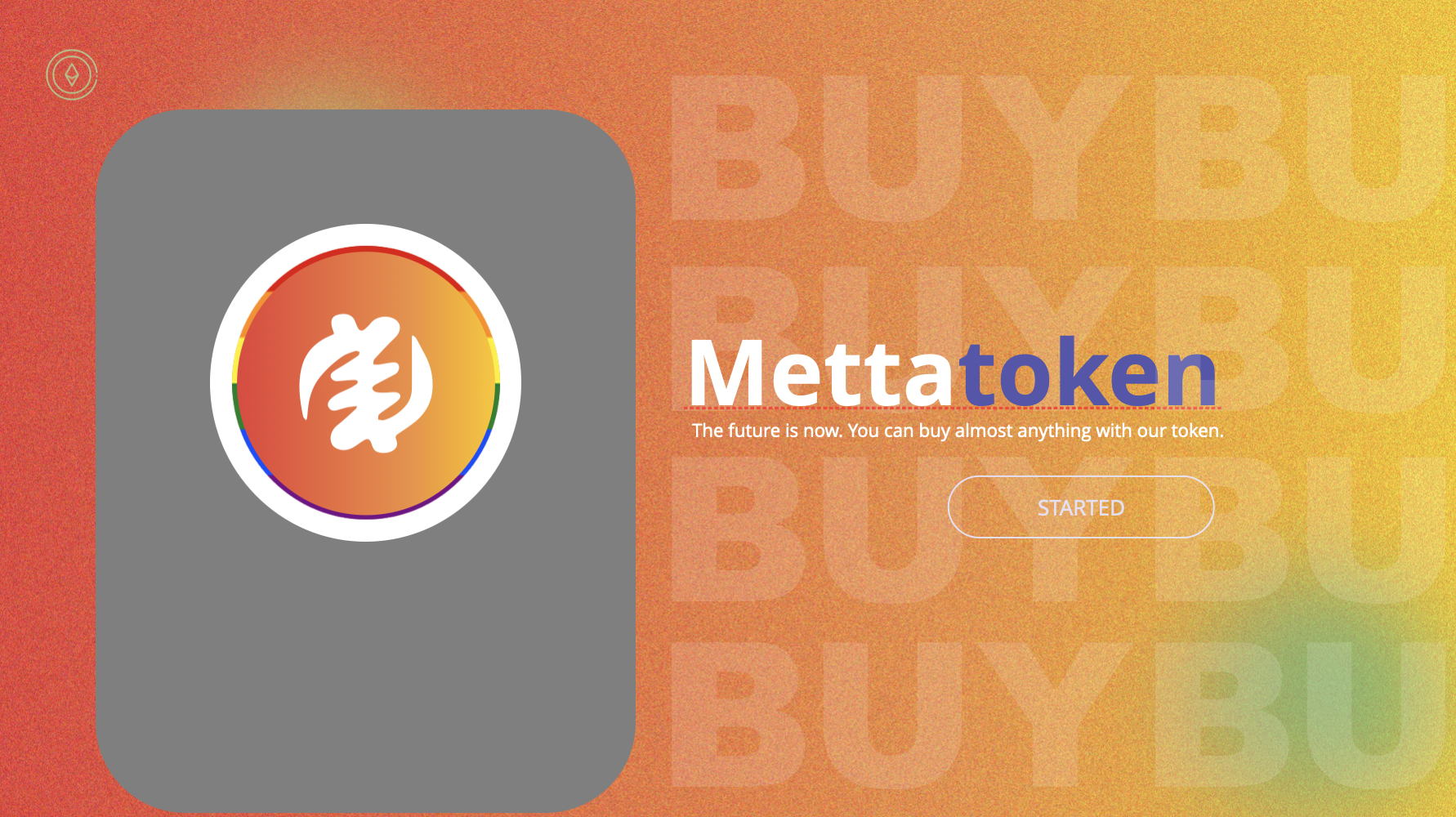
A revolutionary new way to fuel growth and power businesses of all kinds. The Metta Protocol is an ecosystem that includes a variety of businesses, known as consumption points, that offer customers rewards in Metta Tokens. This creates what we call Metta Liquidity – new Metta investors who can then use the protocol token to purchase products and services from other businesses within the ecosystem. It’s a simple but effective way to keep the ecosystem running smoothly and efficiently.
This innovative new token has been created as a self-sustaining ecosystem which fuels growth. The ecosystem includes a variety of businesses, also known as consumption points; Customers and Investors.
The Metta Protocol Token is designed to be used in our everyday lives by all types of businesses – from small mom-and-pop shops to large corporations. It’s a convenient and easy-to-use alternative payment method that offers customers more choice and flexibility. So whether you’re looking to buy a cup of coffee or a new car, the Metta Protocol Token has you covered. Try it today and see for yourself how easy and convenient it is to use.
Businesses in our Ecosystem provide their customers rewards in Metta Tokens, which creates Metta Liquidity and new Metta Investors. This process is called “tokenizing” a business or product. The Metta protocol token can be exchanged for BNB, BUSD by swapping it or on any other cryptocurrency through an exchange that supports it, so it can be used as an alternative payment method for products and services offered by other companies within the Fusion Ecosystem.
METTA PROTOCOL TOKEN Currency is designed to be used in our everyday life by every type of business dealing in products and services. Whether you’re buying a cup of coffee or booking a hotel room, you can now do so with Metta Token! This offers a huge advantage over traditional methods of payments, as there are no banks or third party intermediaries involved. This means that transactions are fast, cheap and secure.
Utility Tokens: How They Work and What They’re Used For
In the cryptocurrency world, a token with a specific use case within a particular ecosystem is called a utility token. These tokens enable users to carry out specified actions in the network they are associated with. Each ecosystem’s utility token is unique. Here, we’ll take a closer look at how they work and what they’re used for.
How Utility Tokens Work
Utility tokens are often pre-mined, meaning they are generated all at once and distributed in a way decided upon by the project team. Unlike cryptocurrencies, which can be mined, utility tokens cannot be mined. Sometimes, utility tokens are referred to as app coins or application tokens.
What Utility Tokens Are Used For
Utility tokens give users access to goods and services within their associated ecosystem. For example, the Metta Protocol enables users to tip, rent an air BnB, watch their favorite shows, and more by using the Metta Token. Another example is Filecoin, a decentralized storage network that allows users to buy and sell storage space on the network. Users of the Filecoin network pay for storage space with Filecoin’s native token, FIL.
Utility tokens are an important part of the cryptocurrency world. By enabling users to access goods and services within their associated ecosystem, they provide a valuable service. If you’re thinking about investing in a utility token, it’s important to do your research to make sure you’re investing in a well-established project with a solid use case.
Utility Tokens are the Wave of the Future
In the world of cryptocurrency, there are many different types of tokens. Coins, or currencies, have one function: to transfer monetary value. Bitcoin (BTC) and Litecoin (LTC) are good examples of currencies. On the other hand, Tokens are a different class of cryptos entirely. A cryptocurrency token with a specific use case within a particular ecosystem is called a utility token. These tokens enable users to carry out specified actions in a particular network. An ecosystem’s utility token is unique.
Currency Tokens
A currency token, such as Bitcoin (BTC) or Litecoin (LTC), has one primary use case: to transfer monetary value. That’s it. While this use case is important, it’s also fairly limited. As a result, currency tokens are subject to more volatility and tend to be more speculative in nature.
Utility Tokens
On the other hand, utility tokens are a different class of crypto entirely. A utility token is a cryptocurrency token with a specific use case within a particular ecosystem. In other words, utility tokens enable users to carry out specified actions in a particular network. Every ecosystem has its own unique utility token.
Utility tokens are important because they provide access to a product or service. They are often used to raise funds during an Initial Coin Offering (ICO), and they give holders a right to use the product or service that is being developed by the startup company. Utility tokens are not equity or debt instruments, and they do not entitle holders to any ownership rights in the company. However, they may appreciate in value if the project is successful and demand for the tokens increases. That’s why utility tokens are often seen as good long-term investments.
What Gives Utility Tokens Value?
Utility tokens get their value from their utility, or usefulness, within a given ecosystem. For example, Filecoin (FIL) is a decentralized storage network that allows users to buy and sell storage space on the network using FIL tokens. The more people use Filecoin, the more valuable FIL tokens become because they are required to buy and sell storage space on the network. Similarly, Civic (CVC) is an identity management platform that allows users to securely store and share their personal data using CVC tokens. The more people use Civic, the more valuable CVC tokens become because they allow users to access the Civic platform.
Another reason why utility tokens may appreciate in value is because they can be used to purchase other assets on their respective platforms. For example, Binance Coin (BNB) can be used to pay transaction fees on the Binance cryptocurrency exchange. BNB holders can also use their tokens to purchase other assets on the Binance platform such as Bitcoin, Ethereum, and Litecoin. The demand for BNB increases as more people use the Binance platform, which drives up the price of BNB tokens.
Utility tokens offer investors a number of advantages over other types of cryptocurrencies such as coins and equity instruments. They have a specific use case within their respective ecosystems and can be used to purchase other assets on their respective platforms. They may also appreciate in value if the project is successful and demand for the tokens increases. That’s why utility tokens are often seen as good long-term investments. So if you’re looking for a cryptocurrency token that you can hold onto for the long haul, utility tokens are definitely worth considering!
So, which type of token is a better long-term investment? While both have their own advantages and disadvantages, we believe that utility tokens are the better investment for several reasons. First, because they have a specific use case within an ecosystem, they tend to be less volatile than currency tokens. Second, utility tokens usually provide holders with some sort of discount or benefit (e.g., lower transaction fees) within the ecosystem, which makes them more attractive to potential investors. Finally, because they’re still relatively new and not as well known as currency tokens, there’s more room for growth with utility tokens.
So what are you waiting for?Join the exciting world of Metta Protocol Token today!
